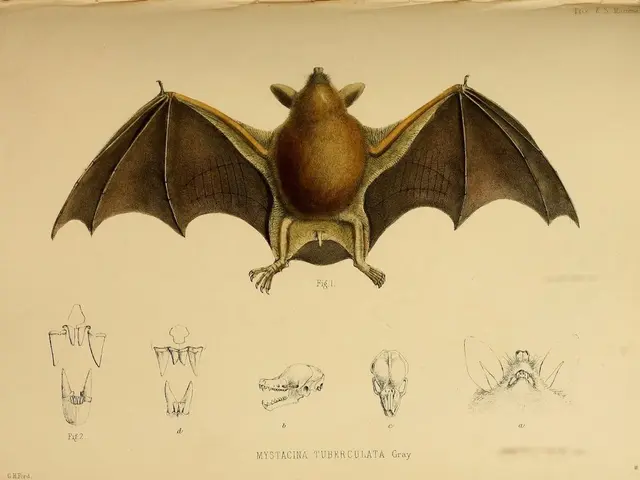Catastrophic increase in measles cases across the United States within the next quarter century, potentially exceeding millions, if immunization rates decline significantly.
In a chilling prediction, researchers at Stanford University have warned that a significant drop in childhood vaccinations could lead to a catastrophic surge in measles, rubella, poliomyelitis, and diphtheria cases over the next 25 years. This scenario, if unchecked, would leave tens of millions of Americans vulnerable to these diseases, with measles alone affecting around 15% of the population.
Publishing their findings in JAMA, the researchers illustrated the dire consequences of a 50% decline in vaccination rates, forecasting that this situation would lead to 51.2 million measles cases, 9.9 million rubella cases, 4.3 million poliomyelitis cases, and 197 diphtheria cases over a quarter-century. This tsunami of illnesses would result in a staggering 10.3 million hospitalizations and 159,200 fatalities, according to the model.
Even maintaining the same vaccination rates as 2025 would still result in over 850,000 measles cases in the U.S., underlining the importance of vaccination in maintaining public health. A mere 10% drop in MMR immunization rates could cause a massive uptick in measles infections, with 11.1 million cases being expected over the next 25 years. Conversely, a 5% increase in vaccinations could bring the number of measles cases down to a mere 5,800. The U.S. requires a vaccination rate of approximately 95% to achieve herd immunity for measles, with current vaccination coverage estimated to be between 87.7% and 95.6%.
Vaccination rates vary greatly across the states, with New York boasting an estimated childhood vaccination rate of 97.7% for the 2023-24 school year, compared to Idaho's rate of 79.6%. Before the introduction of the measles vaccine in 1963, roughly 3-4 million Americans would contract the disease each year, leading to tens of thousands of hospitalizations and several hundred deaths. Measles also causes "immune amnesia," weakening the immune system and making the body susceptible to other infections.
The U.S. is currently grappling with its worst measles outbreak in a quarter-century, with at least 800 confirmed cases in 25 states. Tragically, three deaths have been reported this year, including two children in Texas and an adult in New Mexico. Parents of the deceased children have declined to vaccinate their children, citing a range of reasons, and have aligned themselves with anti-vaccine groups.
This anti-vaccine sentiment has infiltrated the highest levels of government, with Robert F. Kennedy Jr., the current head of the Department of Health and Human Services, formerly a chair of one such anti-vaccine organization. Kennedy recently claimed he would reveal the cause of autism by the fall and is reportedly gathering private health records of Americans to support his research on autism.
Kennedy's stance and conspiracy theories around immunizations are dangerous and run counter to scientific evidence supporting vaccinations. If allowed to continue, they could potentially lead to millions of people becoming sick over the coming decades. And with President Donald Trump in office for the next four years, efforts to combat the anti-vaccine movement may face further challenges.
- In the realm of health and wellness, ongoing developments in science and technology are crucial in shaping the future.
- The future of medical-conditions management, such as neurological disorders and mental health issues, largely depends on scientific advancements.
- In a concerning turn of events, a sharp decline in vaccination rates could manifest in a surge of preventable diseases like measles, rubella, poliomyelitis, and diphtheria over the next 25 years.
- This potential surge, if unchecked, may leave millions of Americans vulnerable to these diseases, with measles alone affecting around 15% of the population.
- According to a recent study published in JAMA, a 50% drop in vaccination rates could result in millions of measles cases, hospitalizations, and fatalities over a quarter-century.
- Maintaining the same vaccination rates as 2025 would still result in over 850,000 measles cases in the U.S., underlining the importance of vaccination in maintaining public health.
- Gizmodo reports that the U.S. is currently grappling with its worst measles outbreak in a quarter-century, with at least 800 confirmed cases in 25 states, leading to three deaths this year.
- Media outlets including general news and crime-and-justice channels continue to report on the ongoing war-and-conflicts, political controversies, and accidents that shape our world, but the measles outbreak suggests that there are other pressing issues demanding attention.
- Sports and sports-betting platforms often dominate headlines, however, the increasing anti-vaccine sentiment, as reflected in the actions of Robert F. Kennedy Jr., poses a dire threat to public health.
- Kennedy's stance and conspiracy theories around immunizations are dangerous and run counter to scientific evidence supporting vaccinations. If left unchecked, they could potentially lead to millions of people becoming sick over the coming decades.
- With President Donald Trump in office for the next four years, efforts to combat the anti-vaccine movement may face further challenges, highlighting the importance of evidence-based decisions in the future of health and wellness.








